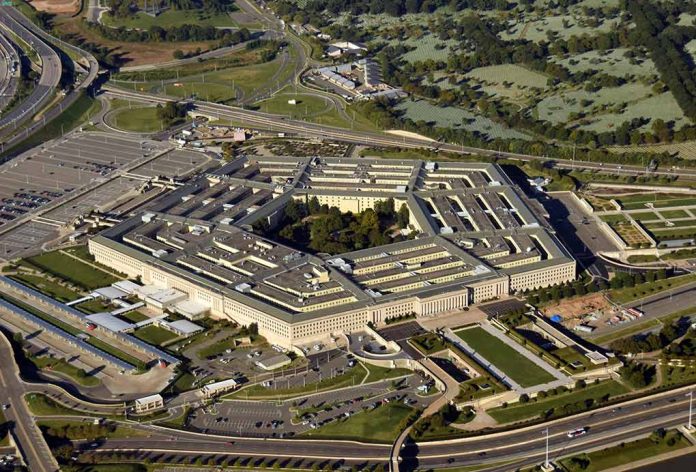
Pete Hegseth, a Fox News host and military veteran, has been nominated as Defense Secretary by President-elect Donald Trump, signaling potentially significant changes in Pentagon policies and military readiness.
At a Glance
- Trump nominates Pete Hegseth, a Fox News host and Iraq and Afghanistan veteran, as Defense Secretary
- Hegseth’s nomination suggests a shift away from diversity initiatives towards combat readiness
- Critics argue Hegseth lacks the typical qualifications for the role
- Potential policy changes include reinstating the transgender military ban and reversing abortion-related travel reimbursements
- Confirmation process expected to be challenging due to Hegseth’s limited national security experience and controversies
Trump’s Controversial Choice for Defense Secretary
President-elect Donald Trump has nominated Pete Hegseth, a former Fox News host and Iraq and Afghanistan war veteran, to lead the Defense Department. This unexpected choice has sparked debate about the future direction of the Pentagon and U.S. military policy. Hegseth, known for his loyalty to Trump and alignment with his agenda, represents a departure from traditional Defense Secretary nominees.
Trump praised Hegseth as “tough, smart and a true believer in America First,” suggesting he would revitalize the military. However, the nomination has raised concerns about Hegseth’s qualifications and potential impact on the Department of Defense.
Qualifications and Controversies
Critics argue that Hegseth is “wholly unqualified” for the role of Defense Secretary, lacking the typical military or governmental experience of past nominees. His military background includes serving as an infantry platoon leader and counterinsurgency instructor, and he has been awarded the Bronze Star Medal. However, concerns have been raised about his ability to manage the Department of Defense, a large bureaucracy with a nearly $900 billion budget.
“I’ve thought before that it was a harder job than the presidency,” said Lincoln Bloomfield, a former State Department official, highlighting the complexity of the role.
Hegseth’s controversial views, including opposition to women in combat roles and DEI initiatives, have also come under scrutiny. He has suggested that diversity initiatives weaken military effectiveness and has called for the removal of “woke” military leaders.
“Any general that was involved – general, admiral, whatever – that was involved in any of the DEI woke s**t, it’s got to go,” Hegseth said.
Pete Hegseth, President-elect Donald Trump’s pick for secretary of defense, said he believes women shouldn’t serve in combat and that he wants to see the military purged of “woke” officials who support diversity, equity, and inclusion (DEI) initiativeshttps://t.co/nE3GKOI0i0
— NBC New York (@NBCNewYork) November 14, 2024
The nomination of Hegseth has also brought to the surface allegations of sexual assault from 2017. Hegseth has vigorously denied the allegations and was never charged. An investigation was conducted at the time of the alleged incident with police failing to file charges. Hegseth paid the accuser in a settlement agreement that included a confidentiality clause.
Anticipated Policy Changes
If confirmed, Hegseth is expected to implement significant policy changes at the Pentagon. These may include reinstating a ban on transgender individuals serving in the military, reversing Biden’s executive order. The Trump administration is also likely to roll back a policy allowing troops to seek leave and reimbursement for out-of-state abortions.
“If you want to have a sex change or a social justice seminar, then you can do it somewhere else, but you’re not going to do it in the Army, Navy, Coast Guard, Air Force, Space Force or the United States Marines. Sorry,” Trump stated, indicating the direction of potential policy changes.
Challenges Ahead
Hegseth’s confirmation process in the Senate is expected to be challenging due to his limited experience in national security and foreign policy. With a slim Republican Senate majority, every vote will be crucial. Some Republican senators, like Lisa Murkowski of Alaska, have expressed surprise at the nomination and a desire to learn more about Hegseth’s background and approach.
“Wow, I’m just surprised, because the names that I’ve heard for secretary of Defense have not included him,” said Sen. Murkowski, reflecting the unexpected nature of the nomination.
Critics, including former national security adviser John Bolton, have described Hegseth’s selection as a “loyalty choice,” raising concerns about potential politicization of the military. As the confirmation process unfolds, the debate over Hegseth’s qualifications and vision for the Department of Defense is likely to intensify, shaping the future of U.S. military policy and readiness.









